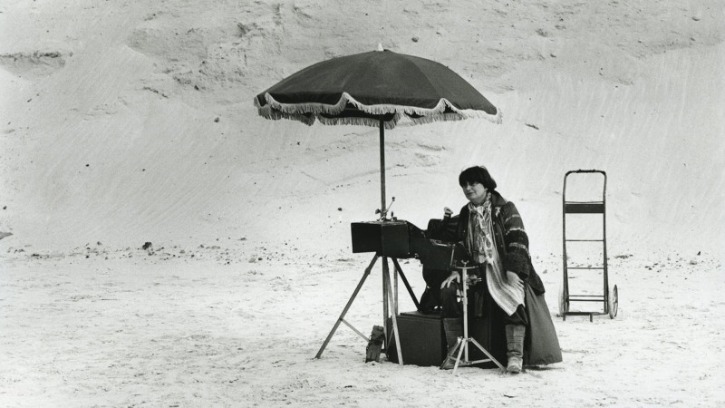Filmmakers Salute Filmmakers

Before we turn to this week’s reading recommendations, we’ve got some business to see to, some of it pretty exciting, some of it simply mournful. First, there’s been a flurry of announcements from the winter festivals. Sundance has added three films to its 2020 lineup, including a new DCP presentation of Lisa Cholodenko’s debut feature, High Art (1998). Rotterdam, which will open on January 22 with the world premiere of João Nuno Pinto’s First World War drama Mosquito, has unveiled the complete lineup for its forty-ninth edition.
- The great sorting through the best of 2019 and the 2010s shows no sign of letting up. IndieWire has conducted a poll of 304 critics from around the world, and Parasite has been named best film and foreign film of the year, while Bong Joon-ho tops the director and screenplay categories. You’ll find annotated lists at the Austin Chronicle, the A.V. Club, the Chicago Reader, Flavorwire, the Guardian, Hyperallergic, Little White Lies, and Slant. Critics groups in Boston,Chicago,Dallas/Ft. Worth,Kansas City,Phoenix,St. Louis,San Francisco, and Seattle have announced their awards. As for the decade, see the rankings at Rolling Stone and Michael Sicinski’s thoughts on the state of making—and watching—experimental films. My own most fervent recommendation, though, is Nick Davis’s ongoing countdown of the top 100 films of the 2010s. Each title is accompanied by an excellent short essay and a batch of related honorable mentions. As of today, Davis still hasn’t hit the halfway point, so there’s plenty of time to catch up and then follow along.
- Variety has collected appreciations of the work of some of this year’s outstanding directors from other directors, and on another page, writers’ salutes to other writers. Alejandro G. Iñárritu, for example, writes about Bong Joon-ho, Julie Dash about Queen & Slim director Melina Matsoukas, Steve McQueen about Pedro Almodóvar, and so on. “Wisdom is needed in film these days,” writes Guillermo del Toro. “Looking back, one can invoke late Renoir, Bresson, Bergman, Oliveira, or Kurosawa, but the list gets meager when you reach current American cinema—conceivably because in its youth-obsessed culture, it seems to phase out the sage in favor of the maverick. Martin Scorsese is both.”
- With Portrait of a Lady on Fire in theaters, we’re currently featuring a program of Céline Sciamma’s previous work on the Channel. In the Notebook, Leonardo Goi writes that Sciamma has “populated her films with characters who heed to their impulses, and transform themselves in the process. There is something empowering about this: it’s the idea that love can change the way you carry yourself into the world, because it helps you understand the space you occupy inside it, embrace the image you project into it, and ultimately, rescue some of it from oblivion.”
- In 1929, the Museum of Modern Art in New York opened a Motion Picture Department and then established the MoMA Film Library (now the Department of Film) in 1935. The first curator was Iris Barry, who wrote a series of Film Notes to accompany those early programs, and Anne Morra, a current associate curator, has based a series on those notes that runs through the end of the year. At Hyperallergic, Elizabeth Horkley writes that “the survey suggests that Iris Barry’s History of Film is the history of film as we study it in the U.S. today.”
- Film at Lincoln Center’s comprehensive Agnès Varda retrospective opens today and runs through January 6. “Her work can be classed by geography and spaces, by movies set in cities and the country, in streets and homes, in France, Cuba, Vietnam and the States,” writes Manohla Dargis in the New York Times. “You could also categorize Varda’s life as a series of befores and afters: before and after cinema, after [her husband Jacques] Demy and before her later-life celebrity.” Writing for 4Columns, Sukhdev Sandhu recalls worrying that “this belated spotlight was distorting, that Varda was being defanged and patronized.” The FLC retrospective may well serve as a corrective, he suggests, “not least because it includes her earlier and rarely screened short films (on topics such as the Black Panthers), which display her prickly intelligence and political antennae.” Jane Birkin, who worked with Varda on two features in 1988, remembers her close friend in the Observer: “She was so small but she was very bossy.” At the same time, she could also be “very unexpectedly tender.”



